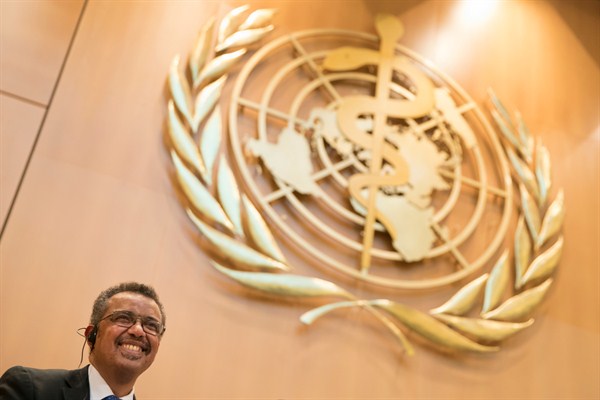Last month, Tedros Adhanom Ghebreyesus won the election to serve a five-year term as the director-general of the World Health Organization, beginning July 1. He may have one of the most unenviable jobs in the world.
The World Health Organization does not enjoy the most stellar reputation these days, with its legitimacy and authority up for debate. Its response to the Ebola outbreak in West Africa between 2014 and 2016 was widely and roundly criticized; no less than six high-level panels recommended substantial changes to how the WHO responds to crises and finances its operations. Member states have refused to increase their assessed dues, yet they expect the WHO to take even more of a leading role in an increasingly complex health environment, with less funding.
Enter Tedros. The former health minister and foreign minister of Ethiopia, he succeeds China’s Margaret Chan as the world’s top public health official and will be the first African to serve as director-general. Tedros is also the first WHO director-general to win the job through a new transparent election process involving all 194 member countries. Previous director-generals had been elected through a confidential vote of just the 34 members of the WHO’s executive board. This new voting system came with all the trappings of any other election: There were campaign websites, public endorsements and even mudslinging.

